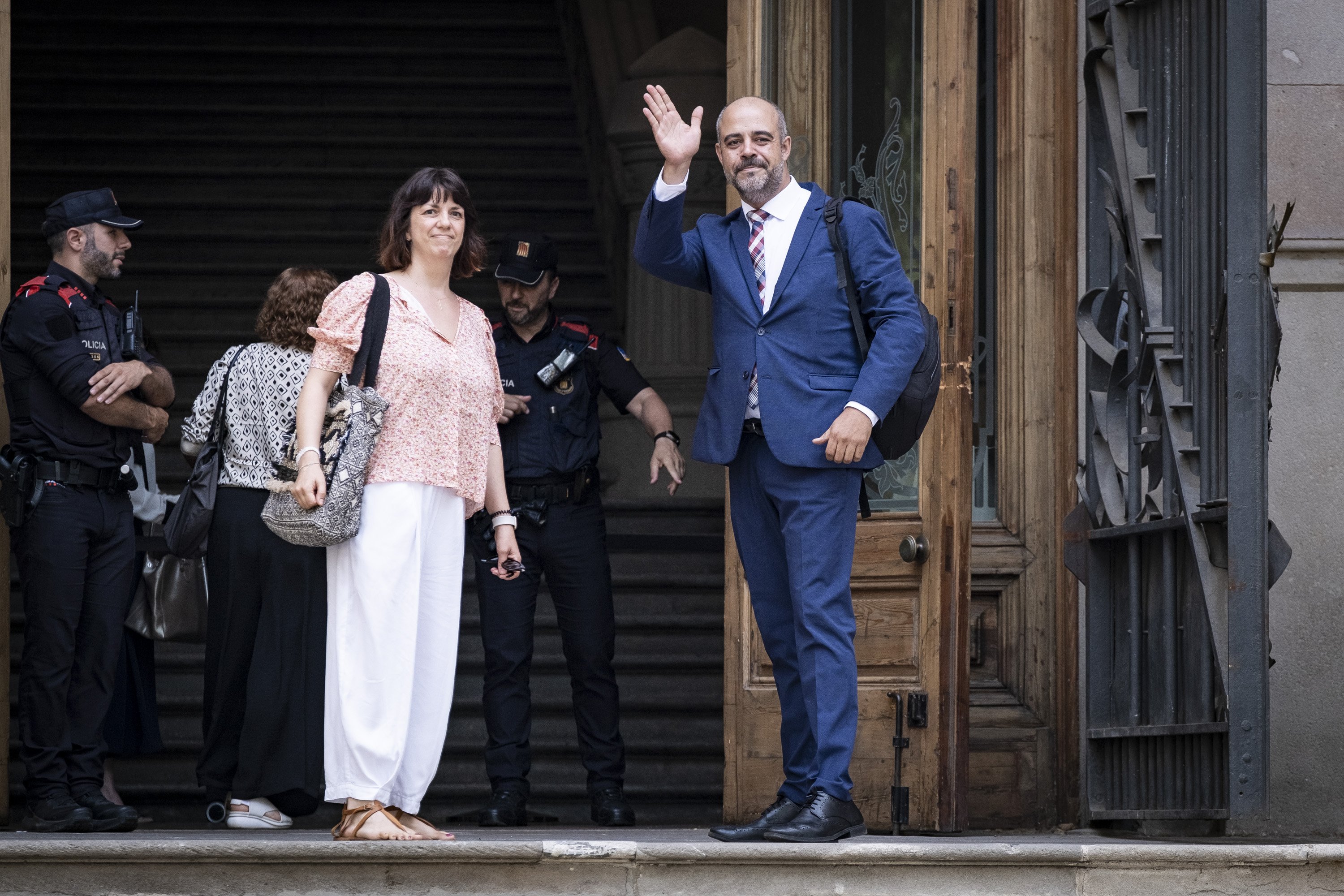The public prosecutors' office in Catalonia opposed the granting of an amnesty to former Catalan interior minister Miquel Buch and Mossos police sergeant Lluís Escolà, each sentenced to four and a half years' prison for having given protection to the president Carles Puigdemont in his European exile, according to the text to which ElNacional.cat had access, this Friday. In the 8-page report, prosecutor Pedro Ariche maintains that the wiping out of criminal liability which the law enables cannot be applied to these two men because the crime of misuse of public funds for which they were convicted does not fit the law, not even with the interpretation given by Spain's prosecutor general in his decree, which asserts that the amnesty can be applied for all crimes related to the 2017 referendum and independence process, including misuse of funds if there was no personal enrichment. And that last point is just the issue: in Buch's case, the prosecutor assures that "there was personal and patrimonial enrichment". Escolà received around 52,712 euros for acting as an advisor to the former minister, but the Barcelona Audience considers that he received this salary for acting as Puigdemont's security escort.
Despite the prosecutor's position, on Tuesday this week, the appeals section of the Catalan High Court (TSJC) granted an amnesty to Buch and Escolà because it claims that the misuse of funds occurred without enrichment. Now, it remains to be seen whether the prosecutors will present a cassation appeal to the Supreme Court calling for this decision on Buch and Escolà to be overturned or, alternatively, they respect the resolution of the TSJC, which has become the first court to execute the amnesty law, agreed by the Spanish Socialists (PSOE) with the two pro-independence parties, Junts and ERC.
No enrichment
In the resolution, the court - consisting of judges Ángels Vivas, Francisco Segura, María Jesús Manzano and Manuel Álvarez - maintains that the "crucial actions of misuse of public funds are not excluded from the amnesty as long as they are related to some of the general actions included in the law, such as the financing of the process" and that "there is no personal benefit of a patrimonial nature". These are requirements that the prosecutor considers apply in the case of Buch and Escolà, and he adds that "it would be an insurmountable paradox that whoever facilitates someone else to carry out security and protection functions for the former president of the Generalitat by approving a resolution to allow it, can be amnestied given the lack of 'personal patrimonial benefit' while the person who actually carries out these security and protection functions directly cannot be amnestied when their conduct is limited to receiving the corresponding remuneration for the services provided".
A "much higher" salary
In opposition to this, the prosecutor Pedro Ariche explains that initially the "concert" between Buch and Escolà would be included in the amnesty law because the legislation includes services aimed at "the protection or security of those responsible for the conduct". He adds, however, that the disposition of public funds, declared proven by the court's judgment, "cannot be included in the new legal concept of misuse of funds that the legislator introduces" in the amnesty law because the law specifies that the person will be covered by the amnesty if they "did not have the purpose of obtaining a personal profit of a patrimonial nature".
And, referring to the decree issued by the prosecutor general, Ariche maintains that "it would not be appropriate" to erase the criminal and civil liability of Buch and Escolà. It argues that from July 30th, 2018 to March 13th, 2019, Escolà was paid as an advisor to Buch, and during these 224 days, about 102 were outside the Spanish state because Escolà - as the court sentence indicates - went to act as a security escort for president Puigdemont and "on those dates was on call". He adds that the 52,712 euros "were received directly by Escolà, who incorporated them into his patrimony and profited from this amount".
The prosecutor maintains that these amounts received by Escolà "were an amount much higher than what would have received under his official status at that time", given that he was a sergeant of the Mossos police. It specifies that Buch approved that Escolà be paid as a Group A civil servant; the minister hired him as his adviser, to fill an existing position of responsibility in the Catalan interior department. He also comments that the policeman did not take a leave of absence or an extension of his medical leave, but accuses both men of "choosing to devise an artifice that allowed them to dispose of and receive the highest possible sum with charges going to the public coffers, a fact that revealed an inherent spirit of patrimonial profit, of an eminently personal nature". And for that reason, he maintains that they cannot be amnestied.
The lawyers of Buch and Escolà, Judit Gené and Isabel Elbal, filed an appeal against the conviction considering that they did not commit any crime, and in the amnesty request, they assured that the Barcelona Audience chamber, which convicted them for the crimes of abuse of authority and misuse of public funds, does not consider any personal or patrimonial enrichment to be proven.

